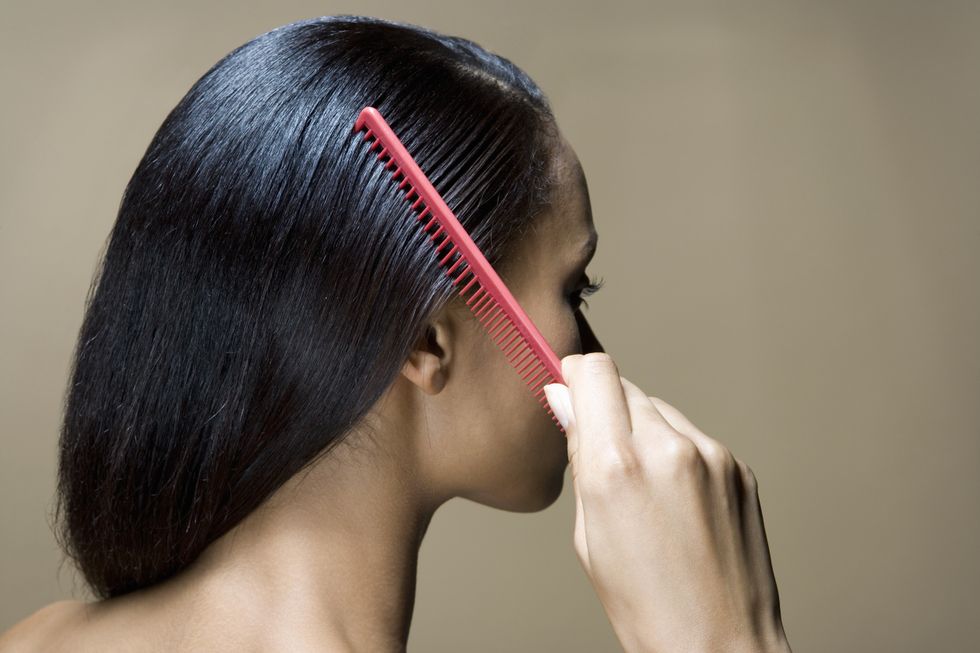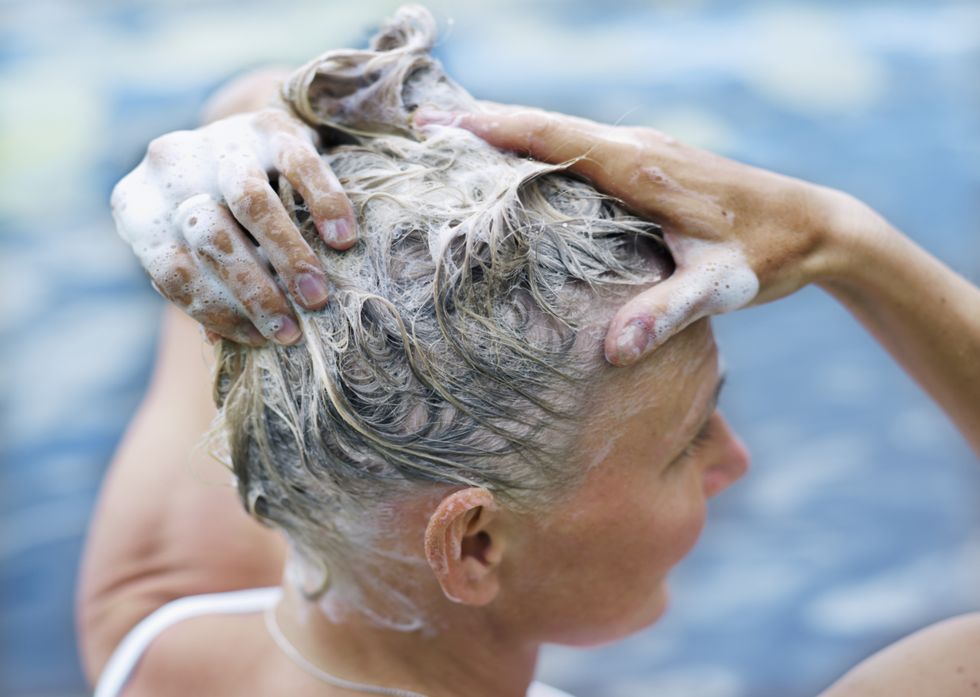‘I’m 57 - a simple switch-up in my shower routine has added sheen and volume to my hair'

Lisa Monique warns against using products that contain sulfates
|GETTY / YOUTUBE

Women in their 50s have been told to avoid certain ingredients to boost the shine of their locks
Don't Miss
Most Read
Latest
Research indicates that hair changes in a woman’s golden years are often the result of hormonal imbalances.
Fortunately, rethinking a shower routine can lead to noticeable changes in the appearance of tresses for women in their 50s.
Lisa Monique claims the most noticeable changes in her hair were related to dryness, but switching up her shampoo returned her scalp to a strong and healthy state.
The YouTuber took to her channel to discuss the benefits of omitting sulfate-free shampoos from hair routines for shinier locks.

Hormonal imbalances can cause hair to lose its thickness and shine
| GETTY“One of the things you can do is switch to a sulfate-free shampoo,” she said. “[For a long time] I really did rebel against that advice because I really did like my shampoo.
“I did notice in the past couple of years that the ends of my hair were starting to get a little dryer, so I switched to another shampoo. I noticed my ends getting softer.”
The content creator claims sulfate-free shampoo benefit women who colour their hair, because sulfates can strip tresses of their colour.
“Switching to a gentler shampoo and conditioner is another way you can protect your hair as you age," she reiterated.
Sulfate-free products help locks maintain their natural oils, meaning they become noticeably softer and shinier.
On the other hand, harshly stripping the hair of its natural sebum leaves hair looking brittle and weak.
Emma Jarvis, Salon owner of The Hair Base and founder of the THB Academy, said: “Steer clear of sulfates, as they have a reputation for stripping the hair of its natural oils, leading to dryness and brittleness while potentially causing scalp irritation and hair loss.
“Additionally, avoid silicones, which, although providing temporary smoothness, can build up on the hair and scalp, hindering moisture absorption and resulting in hair damage.
“For maximum shine and health, opt for clean, moisturised hair free from these ingredients.”
The expert recommends prioritising hydration and cleanliness for a glass-like finish.
LATEST DEVELOPMENTS
- 'I'm a hairstylist and women with grey hair can take 20 years off their age by avoiding a styling mistake'
- Women with grey hair need to stop making 'big mistake' with products if they want to look their best
- 'The fresh start I needed': Hair replacement systems can be life-changing for men who are losing their hair

Wash hair less frequently to avoid disturbing the hair's natural moisture balance
| GETTY“Maintaining proper hydration and cleanliness is a top tip for gaining glass hair," explained Emma.
“Regular trims, deep conditioning treatments, and lots of hydration all play key roles in achieving the desired vibrancy and sheen for gorgeous glass hair.”
As for how frequently women should wash their hair for a glassy appearance, it's crucial to find a suitable routine based on hair type.
Emma recommends washing hair every two to three days to avoid disturbing the hair's natural moisture balance.










